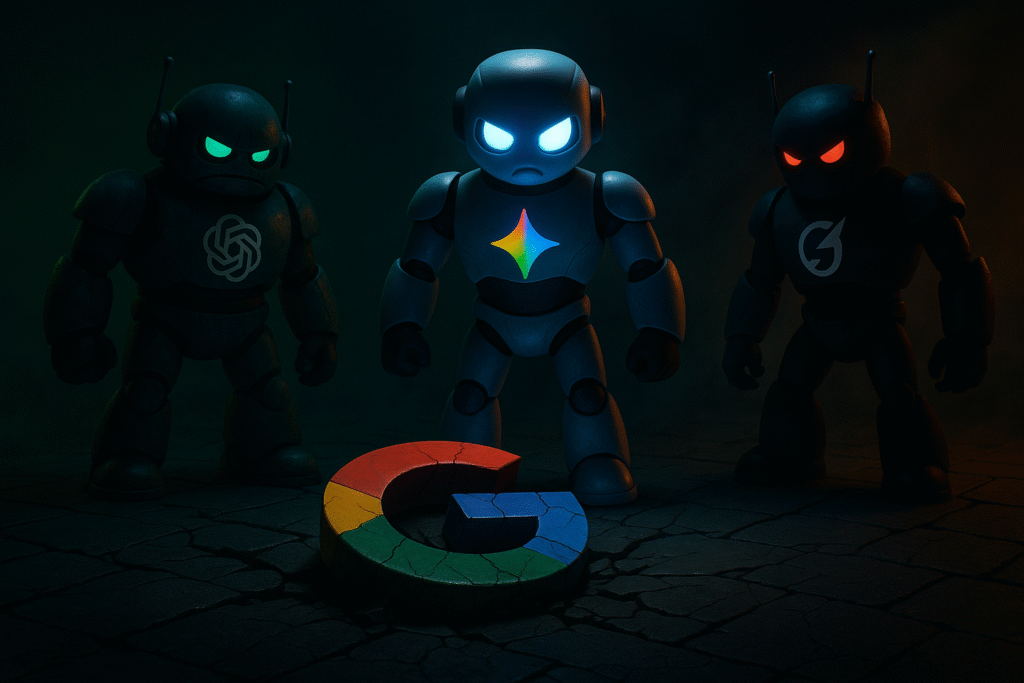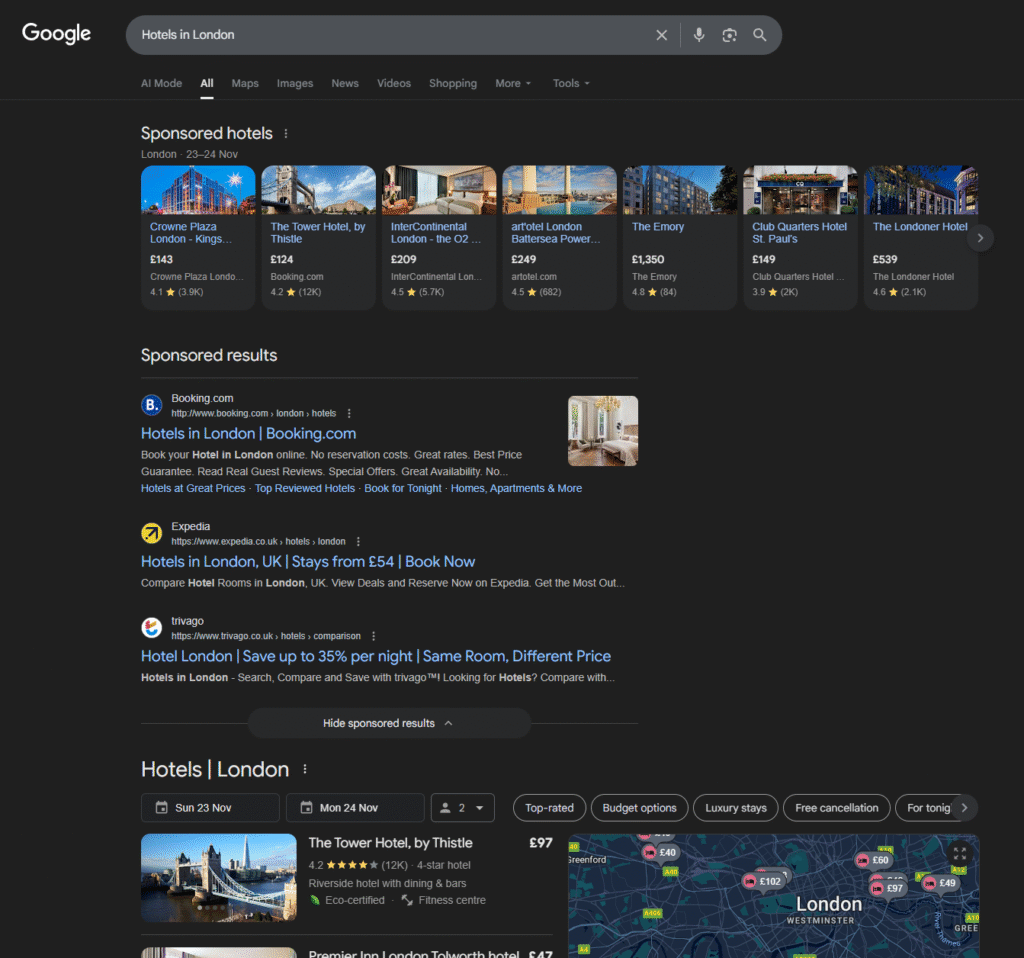Let’s be honest, the future of search engines isn’t some far-off science fiction. It’s happening right now in our living rooms—and Google’s already losing.

How Kids and Gen Z Search Today
If you’ve got kids, you’ll know what I mean. My 11-year-old daughter uses her voice for everything, texting, searching, even homework. Typing? Only if she’s desperate. And if I handed her ChatGPT on her phone, she’d forget Google ever existed. The only reason Google survives in our house? Maps.
Voice Search Is the New Normal
Kids aren’t just searching differently, they’re barely searching the way we did. Voice search is their go-to. It’s quick, natural, and way more fun than typing. For parents, this means we need to rethink how our families find information. Bringing the future of search engines as they stand today into question.
TikTok and Instagram vs. Google
Here’s the kicker: nearly half of Gen Z already prefers TikTok and Instagram over Google for finding answers (Fortune). The next generation isn’t waiting for 2030. The transformation is here.
Why Google Is Losing Its Grip
Google’s not dying because of AI alone. It’s fading because it doesn’t fit how our kids want to find things.
Sponsored Results and Search Fatigue
Let’s face it, Google’s first page is a wall of ads. Finding the real answer means scrolling past sponsored results. That’s not what busy parents or curious kids want.

One-Answer AI and Transparency Issues
AI is replacing Google by giving one confident answer, but with little transparency. At least Google shows multiple sources—even if you have to dig. With AI, it’s one answer, no sources. Same gatekeeping, just a new interface.
And while AI’s accuracy is improving, it’s not perfect. AI “hallucinations”, those made-up facts, have dropped from 21.8% in 2021 to just 0.7% in 2025 (see the stats), but that’s still not zero. So, transparency and source-checking matter more than ever.
The Real Digital Divide: Critical Thinking in the AI Era
The digital divide isn’t about who has internet anymore. It’s about who knows how to challenge what AI says.
AI Misinformation and Authority
Social media is already full of unchecked info, but AI makes it trickier. When an AI spits out an answer in an authoritative voice, it’s easy to take it at face value, especially for kids.
Teaching Kids to Challenge AI
That’s why we need to teach our kids (and ourselves) to challenge the AI. Don’t just accept the first answer. Ask for sources. Double-check. Treat AI like a research assistant, not an all-knowing oracle.
What Parents Need To Do Now
Building a “Challenge First” Mentality
I’m teaching my daughter to always assume an AI’s answer needs validating. If you can’t see the source, ask for it. Challenge first, trust later.
Using AI as a Thought Partner
Use AI to spark ideas, not to do the thinking for you. Let it help shape your thoughts, not replace them. That’s the real skill our kids need.
The Bottom Line: Preparing for the New Normal
Search engines aren’t dying in 2030, they’re dying now, and most of us haven’t noticed.
The real question isn’t “Is Google dying?” It’s: Are we teaching our kids the critical thinking skills they’ll need when AI is their first stop for everything?
Ready to help your family thrive in the AI era? Join our newsletter for practical tips, stories, and tools—straight from one sports-loving parent to another.
Want to learn more about AI? Start here – What is AI?
